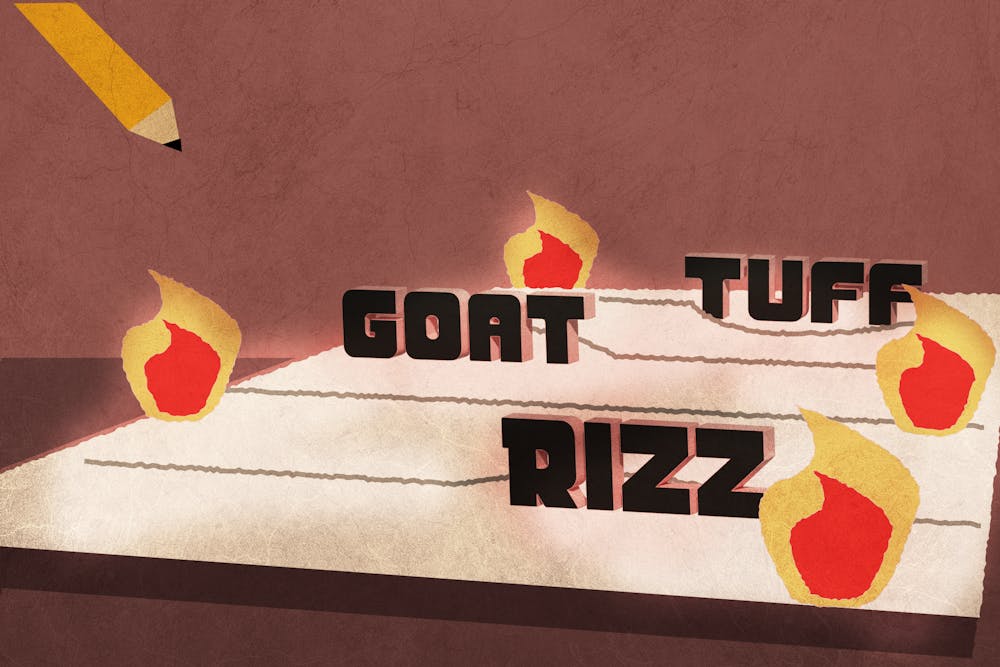If an alien were to stand in the middle of the Quad, or maybe in the center of Lenoir Dining Hall, they’d hear some of the most exquisite diction of our species. Someone is “geekin” on the escalator. Someone else’s "tuff fit," ate. Another is skipping class for the plot. There’s even someone being joshed in the Pit.
Any university is a hotspot for slang with the dense concentration of young people. However, I don’t just hear slang within groups of first-years standing in the middle of the sidewalk or in the spine-tingling back rooms of the Student Union. I’m starting to hear slang in my classes and seeing it within formal writing. And that’s low-key scary.
Slang has always been around in any historical context. Whether it existed in phrases like “gnarly,” “bogus” and “tubular” in the 80s or “groovy,” “fab” and “far out” in the 60s, the youth of a generation is almost always connected by a distinct lingo.
What’s different between the slang used in past generations compared to slang used today, though, is the context in which it’s used. A 2021 study in the Journal of Communication and Cultural Trends found that compared to Generation X, Generation Y uses more "netspeak" or slang in their everyday speech. Millennials have begun including slang not just in casual writing but in formal writing. And this is due to the influence of the GOAT: the internet.
Texting, social media and other internet mediums have allowed people to have informal spaces to use slang besides just spoken day-to-day language. With millennials' use of slang in formal writing, it’s not illogical to assume that Gen Z will grapple with this same problem. Gen Z has been exposed to technologies and social media from childhood, and the omnipresence of the internet demands efficient communication, i.e. the usage of slang.
The study also explains that internet users experience a complex process of code switching — where they flip between using slang on the internet to more casual colloquialisms in verbal exchanges to sophisticated language in formal settings. Since our generation is constantly on our phones, the switching between slang and normal language can get all mixed up, and slang seeps into places it shouldn’t be.
Beyond the internet, African American Vernacular English also influences many of the day-to-day slang words that we hear. AAVE itself is not slang or “bad” English. It functions like another language — one that utilizes specific tenses and grammatical structures that differ from standard English. Though the term AAVE was created to officially recognize Black English as a language, its main goal was to validate the spoken dialect — most speakers also code switch when it comes to formality. When it is claimed and used by white people as slang, they often lack this knowledge or historical context.
Our public University isn’t immune to this trend. In one of my classes, the phrase “L rizz” was used in a midterm project. In a peer’s paper that I read, they used the phrase “popped off.” In a serious way. I’ve even been known to slip slang into an article or two. Seeing slang like this can be funny and pretty jarring, but it also reflects a larger worry that some linguists have about the preservation of traditional language.
As social media and the internet continue to grow, the line between formal and informal language will likely blur. Linguistic changes like this are natural, but the unpredictable nature of the internet makes linguists and older generations wary of the survival of our “mother tongue.”



